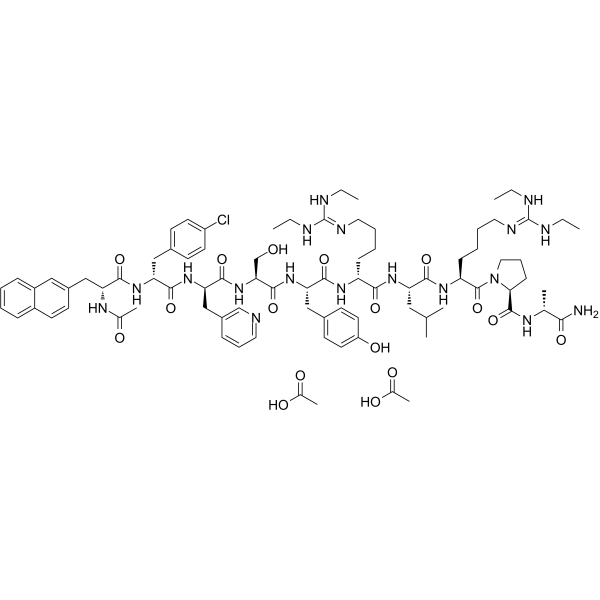In vitro fertilization stimulation protocol for normal responder patients.
R Marci, D Caserta, F Lisi, A Graziano, I Soave, G Lo Monte, A Patella, M Moscarini
文献索引:Gynecol. Endocrinol. 29(2) , 109-12, (2013)
全文:HTML全文
摘要
The aim of this prospective observational study is to determine the different outcomes of IVF/ICSI treatments after using antagonists or agonists of gonadotrophin-releasing hormone (GnRH) for controlled ovarian hyperstimulation (COH) in normal responder patients. Two hundred forty-seven patients undergoing IVF treatment at the Centre of Reproductive Medicine, Rome (CERMER), from January 2005 to December 2008, were included in the study. Patients were stimulated either with a standard long protocol with GnRH agonists (n = 156) or with GnRH antagonists (n = 91). The use of GnRH antagonists resulted in a significant reduction in the duration of the stimulation (Agonist Group 14.10 ± 2.25 vs Antagonist Group 11.34 ± 2.11; p < 0.001) and in the amount of gonadotrophin (IU of r-FSH) needed (Agonist Group 1878 ± 1109 vs Antagonist Group 1331 ± 1049; p = 0.0014). Moreover a lower number of cycles were cancelled with the antagonist protocol (4.39 vs 6.41%). The GnRH antagonist protocol, when compared to the GnRH agonist one, is associated with a similar clinical pregnancy rate, similar implantation rate, significantly lower gonadotrophin requirement and shorter duration of stimulation. For this reason, GnRH antagonists might be a good treatment even for normal responder patients undergoing IVF.
相关化合物
| 结构式 | 名称/CAS号 | 分子式 | 全部文献 |
|---|---|---|---|
 |
Ganirelix Acetate
CAS:129311-55-3 |
C84H121ClN18O17 |
|
Androgens influence microvascular dilation in PCOS through E...
2013-10-01 [Am. J. Physiol. Endocrinol. Metab. 305(7) , E818-25, (2013)] |
|
GnRH antagonist versus long GnRH agonist protocol in poor IV...
2013-01-01 [Eur. J. Obstet. Gynecol. Reprod. Biol. 166(1) , 43-6, (2013)] |
|
Outpatient management of severe early OHSS by administration...
2012-01-01 [Reprod. Biol. Endocrinol. 10 , 69, (2012)] |
|
Short-term administration of progesterone and estradiol inde...
2013-10-01 [Am. J. Physiol. Heart Circ. Physiol. 305(7) , H1041-9, (2013)] |
|
Replacing GnRH agonists with GnRH antagonists in oocyte reci...
2011-12-01 [Eur. J. Obstet. Gynecol. Reprod. Biol. 159(2) , 355-8, (2011)] |